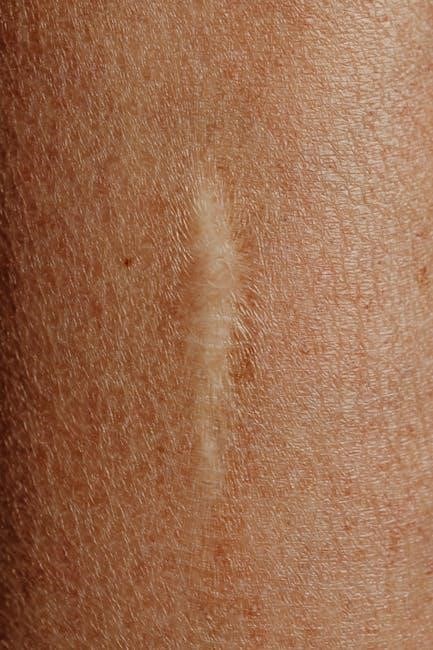
healing scriptures by john hagee pdf
John Hagee, a renowned pastor, emphasizes the Biblical basis of healing through faith and scripture. His teachings highlight God’s power to heal, offering comfort and hope to believers.
1.1 Overview of John Hagee’s Ministry and Teachings
John Hagee is a prominent American pastor, author, and televangelist, founder of Cornerstone Church in San Antonio, Texas. His ministry focuses on faith, prayer, and biblical prophecy, emphasizing God’s healing power. Hagee’s teachings often highlight the authority of Scripture and the role of faith in divine healing. Through his books, sermons, and resources like Healing Scriptures, he provides spiritual guidance, encouraging believers to trust in God’s sovereignty and promises of restoration and hope.
1.2 The Significance of Healing Scriptures in Hagee’s Work
Healing scriptures are central to John Hagee’s teachings, offering believers comfort, hope, and a biblical foundation for faith. Hagee emphasizes these verses as tools for spiritual and physical restoration, encouraging followers to apply them in prayer and daily life. His focus on verses like Psalm 107:20 and Jeremiah 29:11 underscores God’s promise of healing and redemption, empowering individuals to trust in divine sovereignty and experience transformative grace.

Key Healing Scriptures Highlighted by John Hagee
John Hagee frequently highlights Psalm 107:20, Jeremiah 29:11-13, and Deuteronomy 32:39, emphasizing their power to bring healing, hope, and divine restoration through faith in God’s Word.
2.1 Psalm 107:20 ‒ The Power of God’s Word in Healing
Psalm 107:20 underscores the transformative power of God’s Word in healing, declaring, “He sent His word and healed them.” John Hagee often references this verse to illustrate how divine words bring restoration and health. It emphasizes faith in God’s promises as the foundation for healing, highlighting the authority of Scripture in overcoming physical and spiritual afflictions. This verse is central to Hagee’s teachings, encouraging believers to trust in God’s Word as their ultimate source of healing and deliverance.
2.2 Jeremiah 29:11-13 ⎯ Hope and Healing in God’s Plan
Jeremiah 29:11-13 is a cornerstone of hope in John Hagee’s teachings, highlighting God’s plan for healing and restoration. Verse 11 promises, “I know the plans I have for you… plans to give you hope and a future.” Hagee emphasizes that healing is part of God’s divine plan, offering comfort to the afflicted. Verses 12-13 encourage prayer and seeking God, reinforcing faith as a pathway to healing. This passage is central to Hagee’s message of hope and divine restoration.
2.3 Deuteronomy 32:39 ‒ God’s Sovereignty in Healing

Deuteronomy 32:39 underscores God’s sovereignty in healing, declaring, “I am He who heals you.” John Hagee highlights this verse to emphasize God’s ultimate authority over all aspects of life, including health. It reinforces the belief that healing is not merely a human effort but a divine act. Hagee teaches that trusting in God’s sovereignty fosters faith, enabling believers to rely on His power for restoration. This scripture is central to his message of divine healing and trust in God’s plan.

The Theological Foundations of Hagee’s Healing Teachings
John Hagee’s teachings on healing are deeply rooted in biblical theology, emphasizing God’s sovereignty, faith, and the authority of Scripture as the foundation for divine healing.
3.1 The Role of Faith in Divine Healing
John Hagee underscores faith as a cornerstone of divine healing, teaching that believers must trust in God’s Word and promises. He emphasizes that faith is not merely intellectual assent but active trust in God’s power to heal. Biblical passages like Psalm 107:20 and Jeremiah 29:11-13 are often cited to illustrate how faith accesses God’s healing grace. Hagee encourages believers to stand firmly on these scriptures, pray with confidence, and expect miracles through unwavering faith.
3.2 The Authority of Scripture in Healing Ministry
John Hagee’s teachings emphasize the authority of Scripture as the ultimate source of healing power. He frequently references verses like Psalm 107:20 and Jeremiah 29:11-13, which underscore God’s promise to heal. Hagee believes the Word of God is the foundation for every healing and miracle, urging believers to trust in its power. His ministry encourages the use of scripture in healing prayers, reinforcing the belief that the Bible holds divine authority to transform lives and bring spiritual and physical restoration.

Practical Applications of Healing Scriptures
John Hagee’s teachings encourage believers to apply healing scriptures through prayer, declaring God’s Word over their lives to experience divine healing and hope.
4.1 Praying for Healing Using Specific Scriptures
John Hagee teaches believers to pray for healing by declaring specific scriptures, such as Psalm 107:20 and Jeremiah 29:11, which emphasize God’s power to heal. He encourages Christians to personalize these verses, speaking them aloud with faith, believing God’s Word activates divine restoration. This method fosters intimacy with God and reinforces trust in His promises, making prayer a powerful tool for seeking physical and emotional healing.
4.2 Applying Healing Verses in Personal and Intercessory Prayer
John Hagee encourages believers to incorporate healing scriptures into both personal and intercessory prayers. For personal use, verses like Psalm 107:20 and Jeremiah 29:11 can be prayed directly, claiming God’s promises for healing. In intercessory prayer, these scriptures are used to pray for others, reinforcing faith in God’s ability to heal. This approach fosters trust in God’s Word and provides comfort, demonstrating Hagee’s belief in the transformative power of prayer rooted in scripture.

Controversies and Debates Surrounding Faith Healing
Debates about faith healing often spark criticism, with some questioning its effectiveness and authenticity. Hagee addresses skepticism by emphasizing faith’s role in divine healing processes and outcomes.
5.1 Criticisms of Faith Healing Practices
Criticisms of faith healing often center on its perceived lack of scientific basis and potential harm. Some argue it can be manipulative, exploiting vulnerable individuals. Critics also highlight cases where reliance on faith healing has led to delayed medical treatment, worsening health conditions. Additionally, skepticism arises from the inability to measure or verify healing outcomes objectively. These concerns underscore the tensions between spiritual and medical approaches to health, sparking debates about accountability and ethical practices within faith-based healing ministries.
5.2 Hagee’s Response to Skepticism and Criticism
John Hagee addresses skepticism by emphasizing the authority of Scripture and the transformative power of faith in healing. He counters criticism by highlighting the Bible’s promises of divine healing and encouraging believers to trust God’s plan. Hagee advocates for a balanced approach, combining prayer with medical care, while affirming that true healing comes from God. His teachings resonate with many, offering hope and reassurance to those seeking spiritual and physical restoration through faith in God’s Word.

The Comforting Power of Healing Scriptures
Healing scriptures offer emotional and spiritual solace, providing hope and strength to believers. They remind us of God’s faithfulness and His desire to restore and heal.
6.1 Emotional and Spiritual Support Through Scripture
Healing scriptures provide profound emotional and spiritual support, offering hope and comfort during life’s challenges. John Hagee emphasizes how these verses uplift the soul, reminding believers of God’s faithfulness and love. By meditating on passages like Psalm 107:20 and Jeremiah 29:11-13, individuals find strength to overcome adversity. These scriptures empower believers to trust in God’s plan, fostering a deeper connection with Him and reinforcing faith in His healing power and divine care.
6.2 Case Studies of Healing Experiences
John Hagee shares inspiring case studies of individuals who experienced healing through faith and scripture. These testimonies highlight how believers applied specific verses, such as Psalm 107:20, to their lives, resulting in physical and spiritual restoration. Hagee’s teachings emphasize that healing is not limited to the body but also nurtures the soul. These real-life examples demonstrate the transformative power of trusting God’s Word, offering hope and encouragement to those seeking healing in their own journeys of faith and recovery.

Resources for Further Study
Explore John Hagee’s books, such as “The Power to Heal,” and download free PDF resources from Hagee Ministries for deeper study on healing scriptures.
7.1 John Hagee’s Books and Teachings on Healing
John Hagee’s books, such as The Power to Heal and Healing Scriptures, provide profound insights into biblical healing. These works emphasize faith, prayer, and God’s sovereignty in restoration. Hagee’s teachings often reference key scriptures like Psalm 107:20 and Jeremiah 29:11, offering practical guidance for applying these verses in personal and intercessory prayer. His ministry also offers a free PDF resource, Healing Scriptures, which compiles powerful biblical verses for comfort and strength, making his teachings accessible to a wide audience seeking divine healing.
7.2 Recommended PDF Resources and Study Guides
John Hagee Ministries offers a free PDF titled Healing Scriptures, which compiles powerful biblical verses for healing and faith. This resource includes verses like Psalm 107:20 and Jeremiah 29:11, providing a foundational guide for prayer and reflection. Additionally, Hagee’s book The Power to Heal is available as a PDF, offering deeper insights into divine healing. These resources are ideal for personal study, church groups, or those seeking spiritual comfort and guidance.
John Hagee’s healing scriptures offer timeless hope and comfort, empowering believers to trust God’s Word for physical and spiritual restoration, fostering a deeper faith journey.
8.1 The Enduring Impact of Healing Scriptures
John Hagee’s healing scriptures have profoundly impacted believers, offering timeless inspiration and comfort. These verses, rooted in Biblical truth, transform lives by fostering hope and faith in God’s healing power. They remind us of His sovereignty and love, providing a foundation for trust in His Word. By focusing on key passages like Psalm 107:20 and Jeremiah 29:11-13, Hagee’s teachings emphasize the enduring relevance of scripture in seeking physical, emotional, and spiritual restoration, encouraging believers to rely on God’s promises for strength and renewal.

8.2 Encouragement to Apply Healing Verses in Daily Life
John Hagee encourages believers to integrate healing scriptures into daily life for strength and comfort. By meditating on verses like Psalm 107:20 and Jeremiah 29:11-13, individuals can deepen their faith and trust in God’s healing power. Applying these verses in prayer and reflection fosters spiritual renewal and hope. This practice helps believers align their lives with God’s plan, finding solace in His promises and experiencing transformation through His Word.